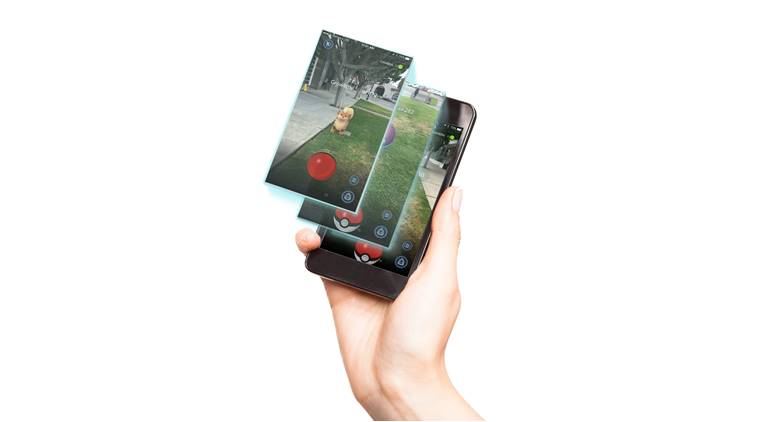Get set, (Pokémon) go! The safety debate
Connecting with your city or compromising security, adding stress or sparking creativity, augmented reality game app Pokémon Go has the world both hooked and divided. A look at the debate triggered by the rush to hunt these fictional cartoon creatures
 Critics have lashed out at the game for prompting people to venture into dangerous neighbourhoods making them vulnerable to criminals.
Critics have lashed out at the game for prompting people to venture into dangerous neighbourhoods making them vulnerable to criminals.
Compiled by Ankita Dwivedi Johri
With 21 million daily active users, Pokémon Go has become the biggest mobile game in US history. There are also reports of the gaming app, that was launched on July 6, overtaking Twitter and Tinder in download numbers. But a series of mishaps fuelled by the app within a week of its launch have raised security concerns. A Pokémon Go player was robbed at knife point in New Hampshire, a player got stuck in a tree in a cemetery in New Jersey, a teenager was led to a dead body in a river in Wyoming, and in Baltimore a man drove into a police car while chasing Pokémons. Critics have lashed out at the game for prompting people to venture into dangerous neighbourhoods making them vulnerable to criminals.
Since the game, developed by Niantic, uses Google Maps and has access to your IP address, it can be used to trace your location, which can then be misused by criminals. But the supporters of the game have argued that it actually compels a player to go for walks and connect with their city and neighbourhood. They say accidents and mishaps can be avoided by being more alert and avoiding seedy locations. While that may be true, the addictive nature of the game and the zeal to catch more Pokémons can compel people to make unwise moves, says sceptics.
Several countries have issued advisories regarding the game and some have even raised ‘national security’ concerns. Egyptian officials are considering banning the game because it allegedly exposes the country’s vital security sites to the world. Egypt’s deputy head of communications has suggested the installation of jammers near State institutions to prevent streaming videos of sensitive areas through the game. An official in Egypt has compared the addiction to the game to “alcohol and substance abuse”. Both Kuwait and Saudi Arabia have asked their citizens to exercise caution. In Bosnia, players have been warned to “watch out for minefields”.
Although the game has not been launched in China, some people fear that it could be used by the US and Japan to locate military bases in the country, according to a social media post that is being circulated. The Chinese Foreign Ministry has, however, denied any such claims.
The US Holocaust Memorial Museum and Arlington National Cemetery have also been listed as ‘Pokéstops’ — where players can collect game items — a move that the officials have called “extremely inappropriate.” They have asked the developers to remove the sites from the game.
The privacy debate
When a player downloads Pokémon Go, the app gets “full access” to the person’s phone. This includes email address, IP address, the web page you were using before logging into Pokémon Go, your username, and your location. Also, unless specifically revoked, the game (and in turn the developers) can access your entire Google account, and get ‘read and write’ access to your email, Google Drive docs, and more; raising concerns about user privacy.
In Germany, consumer advocates have threatened Niantic with a lawsuit if it doesn’t make the mobile app’s terms more “privacy-friendly”. According to them, the game breaks German consumer and privacy laws.
Following the uproar, Niantic issued a clarification: “Pokémon Go only accesses basic Google profile information (specifically, your user ID and e-mail address) and no other Google account information is or has been accessed or collected.” It later turned out that the company was using an outdated version of Google’s shared sign-on service, because of which the step where the app asks for permission to access a person’s account was automatically skipped, and led Google to warn that the app had ‘full access’ to player accounts.
“‘Full account access’ is not the best wording, and should probably be changed at Google’s end,” security engineer Ari Rubenstein told The Guardian.
The psychological impact
As the popularity of the game increases, the debate around its impact on the mind and productivity of the players is also gathering steam. The supporters argue that it pushes a person to get off the couch and go for a walk, sparks creativity and imagination and helps ease social anxiety. The fact that the game has defined goals and step-wise levels encourages feelings “of effectiveness and moving forward”, according to an article in Psychology Today.
But a number of doctors and psychologists feel that the game in fact adds to a person’s stress levels. They also argue that it keeps people glued to their phones, even when they are going out for a morning walk.
Some people contend that the game “exacerbates symptoms for people who have difficulty separating reality and fantasy”. “The game blends elements of reality with virtual/fantasy elements, so it can be confusing for those who already have difficulty distinguishing what is real or not, specifically people who may have psychotic symptoms, so it’s important to be cautious in that situation and discuss it with your doctor first,” an article in Psychology Today says.
Data and other concerns
Apart from safety and psychological concerns, the app is also bound to leave you with a massive phone bill. The game uses the Internet on your phone and since you are on the go, you will not have access to wi-fi connection in all places. The app is constantly checking and transmitting your location via GPS, leading to an increased use of data.
Apart from using Google Maps, the mobile app also uses your camera. This could drain your battery fast. Some players have suggested lowering the brightness of the screen to save battery or carrying an external charging device, but that can only help to a point.







